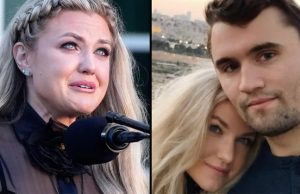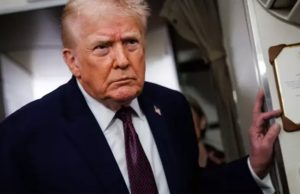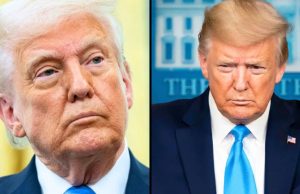
There comes a time when you realize that certain wounds don’t truly heal—they just become part of you.
For me, that realization struck hard at 32, as I stood beside my grandmother’s grave. She was the only person who had ever loved me unconditionally.
And just across the cemetery, my mother—Pamela—stood with her perfect little family, not sparing me so much as a glance.
I hadn’t seen her in years. Not since she chose to keep and raise my younger brother, deciding he was worthy of her love, while I was simply cast aside.
Rain poured relentlessly that day, soaking through my black dress as they lowered Grandma Brooke’s casket into the earth.
My mother stood dry beneath an umbrella, flanked by her husband, Charlie, and their precious son, Jason—my replacement. The “real” family she always wanted.
She didn’t shed real tears. Only dabbed delicately at the corners of her eyes, like she was playing a role.
Once the service ended, she left without a word. Just like she had 22 years ago, when I was ten, packing me off to live with my grandmother.

I stayed by the grave, rooted in place, whispering into the damp wind, “I don’t know how to do this without you, Grandma.”
I was the result of a fleeting affair, a mistake my mother didn’t want to live with.
After marrying Charlie and having Jason, she decided I no longer fit into her life.
“You’re going to live with Grandma now,” she said.
I blinked. “Just for the weekend?”
“No. Permanently.”
“Did I do something wrong?”
She sighed in annoyance. “Don’t make this harder than it needs to be. I have a real family now. You’re just… in the way.”

That night, I packed my things and moved into Grandma’s warm, loving home.
She welcomed me with open arms, hung my drawings on the fridge, helped with school projects, and whispered bedtime promises that she’d never leave me.
But even as I found stability, the sting of rejection lingered.
“Why doesn’t she love me?” I asked one night.
Grandma brushed my hair gently. “Some people just aren’t capable of the love they should give. But that’s not your fault, Becca. Never was.”
“But she loves Jason,” I whispered.
“She’s broken, sweetheart. And sometimes broken people hurt others just so they don’t feel their own pain.”

At 11, Grandma tried to maintain some connection between us and my mother by organizing a family dinner.
I went in hopeful—maybe she’d see me and regret letting me go.
Instead, I watched her coo over Jason as if I weren’t even there.
I handed her a handmade card, carefully drawn with a picture of all of us smiling—a pretend family.
She barely glanced at it before handing it to Jason, dismissing it like it was nothing.
“That was for you,” I said.
“I have everything I want,” she replied without even looking at me.

After that, I stopped trying. And she never looked back.
Years passed. I went to college, built a career in marketing, and bought a small home near Grandma’s cottage.
Relationships were hard—trust didn’t come easily when your first heartbreak was your own mother.
But Grandma remained my constant. She never missed a birthday, graduation, or milestone. She gave me a place in the world when no one else did.
As time wore on, her body weakened and her memory faltered. We spent long afternoons in her garden, talking and laughing.

One day, she asked me to promise something.
“When I’m gone, don’t let bitterness take root. Your mother made her choice. Don’t let it define your life.”
“I promise,” I whispered.
Three months later, she passed in her sleep. Peaceful, the doctors said. But it didn’t feel that way to me.
At the funeral, my mother came, standing like a stranger. Not a single word passed between us.
Days later, she appeared at my door, older, more fragile, but still wearing that same calculating expression.

“Jason knows about you,” she said. “Your grandmother sent him a message before she passed. He’s angry. He won’t speak to me. I need you to help me fix this.”
The audacity of her request stunned me.
“You abandoned me. You erased me. And now you want me to fix it?”
Her tears didn’t sway me. I had shed enough tears for her years ago. Still, for Jason’s sake, I agreed to talk to him, not her.
We met at a quiet café. Jason looked like our mother, but there was warmth in his eyes.
“I’m so sorry,” he said, before I could even speak.
“You don’t need to be. You didn’t know.”

He told me about Grandma’s message—photos, stories, and the truth.
Our mother had lied to him, told him I didn’t exist. But Grandma made sure he’d find me one day.
“She was always looking out for us,” I said.
We talked for hours, bridging the gap she had created. Slowly, we formed a bond neither of us had known we needed.
In the weeks that followed, our connection grew stronger. We shared stories, memories, and built something real. Meanwhile, our mother continued to call, beg, and show up. But I didn’t answer. I had made my choice.

On Grandma’s birthday, Jason and I placed yellow daisies at her grave.
“She would’ve loved you,” I told him. “Truly loved you.”
As we turned to leave, we saw her—our mother—watching from a distance. We didn’t wave. We didn’t speak. We got in our cars and left her behind.
Because in the end, family isn’t defined by blood. It’s defined by those who stay, who choose to love when they don’t have to.
Grandma chose me.
And in her final act of love, she gave me back my brother.

Some wounds don’t vanish—but around them, healing can take root. And sometimes, that’s enough.















